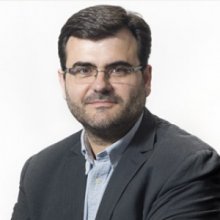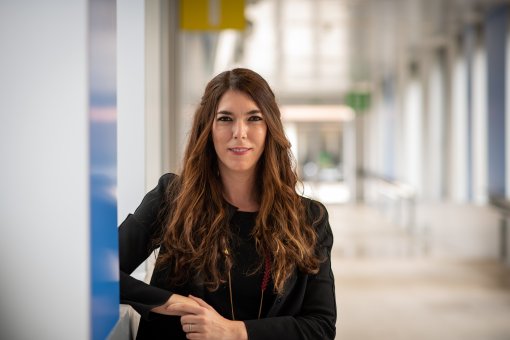Images
Participants

Contact

The IRB Barcelona scientist and head of the Colorectal Cancer Lab has been awarded the Olof Palme Medal in recognition of his recent discovery regarding the treatment of advanced-stage colon tumors with immunotherapy.
This afternoon, Eduard Batlle, head of the Colorectal Cancer Lab at the Institute for Research in Biomedicine (IRB Barcelona), is to be presented with the XIV Medal from the Fundació Internacional Olof Palme (FIOP), in an official ceremony in the “Saló de Cent” (Great Hall) of the Barcelona City Council. The presentation will be chaired by the mayor of Barcelona, Ada Colau, and the president of FIOP, Anna Balletbò. The scientist has been awarded the medal in recognition of his research into colon cancer and, in particular, recent breakthroughs that pave the way to the clinical use of immunotherapy to treat aggressive colon tumours and their metastases. The study was published in February in the scientific journal Nature.
In its announcement, FIOP stated that “the Medals are given in recognition of those who have worked to promote the main ideas put forward by Olof Palme: the defence of human rights, peace, the resolution of conflicts, and sustainable development, and the right to health is undoubtedly a key element that you are developing.” This year FIOP is also awarding a medal to Dr. Federica Bertochini, a scientist at the Institute of Biomedicine and Technology of Cantabria.
FIOP is a non-profit organisation that was founded in 1989. First awarded in 2004, the medal has been presented to the following, among others: Jody Williams, Nobel Peace Prize 1997; Felipe González, ex-president of the Government of Spain; Jacques Delors, ex-president of the European Commission; and Pasqual Maragall, ex-president of the Catalan Government. Last year’s awards went to the NGO Pro Activa Open Arms and the ex-deputy-secretary general of the UN, the Swede Jan Eliasson.
Eduard Batlle (born 1970, Barcelona) is an ICREA research professor, head of the Colorectal Cancer Laboratory at IRB Barcelona and coordinator of the Oncology Programme at the same centre. After getting a PhD in Biology from the University of Barcelona in 1999, he did a four-year postdoc training period at the Netherlands Institute for Developmental Biology, in Utrecht, with the researcher Hans Clevers. Batlle has published work in leading biomedical journals with impact factors over 20, such as Nature, Cell, Cancer Cell and Nature Medicine. In recent years his studies have been worthy of reviews and numerous comments. Batlle’s research is supported by various funding organisations, both public and private, among them two competitive projects from the European Research Council (ERC)—one awarded an ERC Advanced Grant and the other an ERC Proof of Concept Grant. Eduard Batlle is also member of the CIBERONC network (Biomedical Research Networking Centre in Oncology), from which the lab receives funds for developing the studies.
Dr Batlle has received various prizes and distinctions, among them the Debiopharm Life Sciences Award for Outstanding Research in Oncology, given by the École Polytechnique Fédérale de Lausanne (EPFL) in Switzerland (2006), the Banco Sabadell Award for Biomedical Research (2010), the Josef Steiner Cancer Research Award (2013), the Pezcoller Foundation- European Association of Cancer Research Award (2014), the Health Sciences Award from the Caixa Rural de Granada Foundation (2015), the Lilly Foundation Pre-clinical Research Award (2016), the Carmen y Severo Ochoa Prize (2016), and the XI Francisco Cobos Foundation Prize (2017).
About IRB Barcelona
The Institute for Research in Biomedicine (IRB Barcelona) pursues a society free of disease. To this end, it conducts multidisciplinary research of excellence to cure cancer and other diseases linked to ageing. It establishes technology transfer agreements with the pharmaceutical industry and major hospitals to bring research results closer to society, and organises a range of science outreach activities to engage the public in an open dialogue. IRB Barcelona is an international centre that hosts 400 researchers and more than 30 nationalities. Recognised as a Severo Ochoa Centre of Excellence since 2011, IRB Barcelona is a CERCA centre and member of the Barcelona Institute of Science and Technology (BIST).






